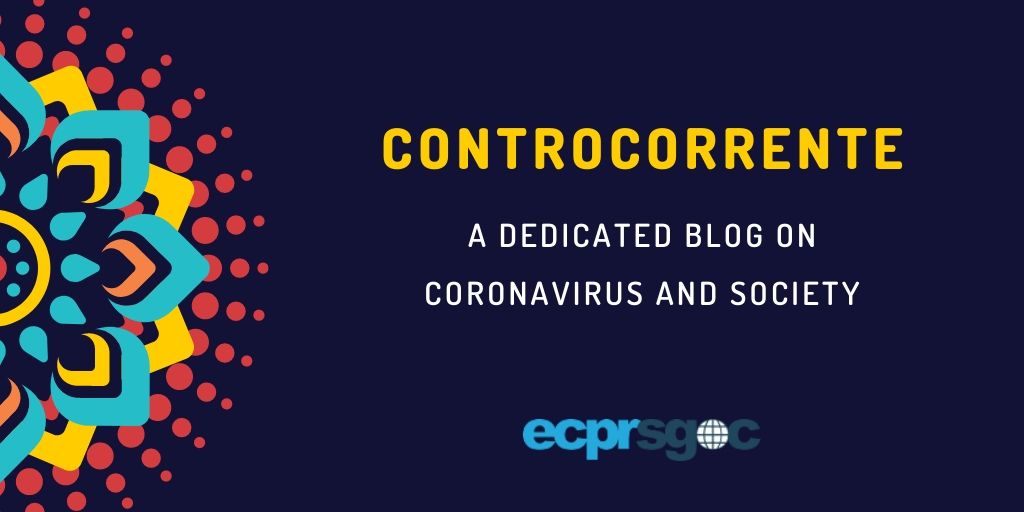
Organized Crime and Covid-19
Martina Bedetti
The effects of health emergency on day to day life
Following the health emergency, the Italian government has gradually imposed severe measures to contain the spread of Covid-19. In the end of February authorities placed few towns in the Lodi area on lockdown while in early March these measures have been extended to the entire Lombardy region and to some provinces in Piedmont and in Veneto. Afterwards, the whole Italy was declared “special care zone”, domestic and international travels prohibited, and non-necessary shops were imposed to suspend their activities. To meet the need of the decree law and to mitigate the future economic crises, enterprises have asked their employees to work from home or to anticipate their vacations. Consequently, Italian cities, villages and streets are now nearly empty and manned by police forces, while the entire country is stuck at home.
In these circumstances, forced homeworking might bring few advantages such as encouraging researchers and employees to focus further on their tasks; Furthermore, it is possible to organize meetings online and to easily share documents with colleagues. On the other hand, one cannot ignore that most of the research projects are based on interviews and on “field study”. In my opinion the movement restrictions prevent researchers to collect data on the first hand and therefore having a negative impact on the quality of the research itself. Finally, the temporary closure of universities and research centres might prevent the opportunity to talk to experts and to have access to documents that are not online. The health emergency has been having an impact on people day-life, but also on organized crime attitudes.

The effects on the criminal economy: how mafia-type groups could fill the “economic gaps”.
As mentioned before, the Italian “Decree law n.6” (1) has brought substantial economic consequences for both the Italian legal industry and the criminal economy. In this regard, it is necessary to underline that organized crime groups have always taken advantage of the free movement of persons, capital goods and services, because it is vital for them. In fact, this liberty has led them to enforce their illegal trafficking abroad and to find new opportunities far from their homelands colonizing “non-traditional areas” in the past. Therefore, movement restrictions will have a severe impact not only on the population itself but also on criminal strategies. For instance, camorra clans seem to be obliged to modify the way they deal with drugs preferring now online apps in order to build new networks (2). Likewise, other typical activities of mafia syndicates, such as extorsions and thefts, might be affected by the severe controls carried out by the authorities because of the mentioned decree law.
Furthermore, the closure of non-essential shops will have negative impact on their businesses: an example is given by the suspension of all gambling facilities for the Covid-19 emergency. However, organized crime groups have always demonstrated a great ability to readapt their organizational structures and strategies due to historical, geo-political and economic changes, especially in recent years. It is possible that in this new context they will be able to take advantage of the sanitary emergency in order to find different ways to gain profits, as it has already happened during other Italian crisis, natural disasters for examples (i.e Irpinia earthquake in 1980; L’Aquila earthquake in 2009 and Emilia earthquake in 2012). Therefore, the recent outbreak of virus might open new “economic spaces and niches” to fill in and offer them diversified opportunities of economic growth to exploit during the phases of this emergency, especially when it will be over.
First stage of Covid- 19 Emergency
Following the entry into force of the mentioned Decree law, it is assumed that organized crime groups might have been developing new strategies in order to carry on their businesses. From one side, mobility restrictions might lead some groups to shift part of their activities to the online world. On the other side, part of them might be able to diversify their actions by providing population with essential goods that can be hardly found in legal markets. Investigations conducted by both Italian and foreign authorities seem to confirm this trend: in fact, the financial police of Naples (Guardia di Finanza) has recently seized a huge amount of illegal hand sanitizers; at the same time Interpol affirmed that under “Operation Pangea” (3) several counterfeit facemasks, substandard hand sanitizers and unauthorized antiviral medication have been seized worldwide as well.
In this period of crisis mafia syndicates, especially the ‘ndrangheta, might strengthen their presence in certain economic activities in which they were already active, such as funeral services or waste treatment activities. In addition, it must be considered that the media and the political attention is exclusively on the coronavirus emergency. This could bring more invisibility to organized crime (the so called “cono d’ombra”) that is no more on the political agenda while there is less interest of the society on this issue. Finally, two other advantages must be mentioned: most of the authorities are currently employed to ensure that Italian population is compliant with the new rules, while the justice system is slowing down and therefore proceedings will be postponed. In this regard, the relevant ‘ndrangheta “Aemilia” process must be mentioned since the defendants have asked for home detentions because of the health emergency
Post emergency stage
Surely the end of this emergency period will have considerable positive effects on the mafia syndicates if they won’t be predicted in advance by the European authorities in general. As it happened in the past, it can be argued that economic gaps will be probably filled in by organized crime. For instance, small and medium enterprises that have been facing economic difficulties might be easily acquired by different mafia-type groups. As an example, it must be mentioned that in the last years the ‘ndrangheta has already exploited this strategy in order to acquire small businesses in the Veneto region. Secondly, they will probably be able to further infiltrate the reconstruction sector and to have an influence on the public procurements especially if European funds will be given to the most affected areas.
In my opinion, the new economic scenarios might be compared to what happened in the East part of Germany falling the Berlin wall fall: new opportunities of investment will be opened to the mafias not only in Italy but also in other European countries that have been affected by the covid-19 emergency due to the fact that these countries have no tools to fight organized crime efficiently.
Endnotes:
(1): Regarding ‘Urgent measures on containment and management of the epidemiological emergency from COVID-19’
(2): Sergi Anna “Effetti indesiderati del Covid-19: sei opportunità per le mafie” in lavialibera.libera.it, 19 March 2020
(3): Interpol “Global operations sees a rise in fake medical products related to Covid-19”, interpol.int, 19 March 2020.
This blog aims to reflect the opinions, thoughts, and concerns of academics and researchers related to COVID-19. It does not aim to engage any prediction. All views belong to authors and it does not represent the views of any organisation.

